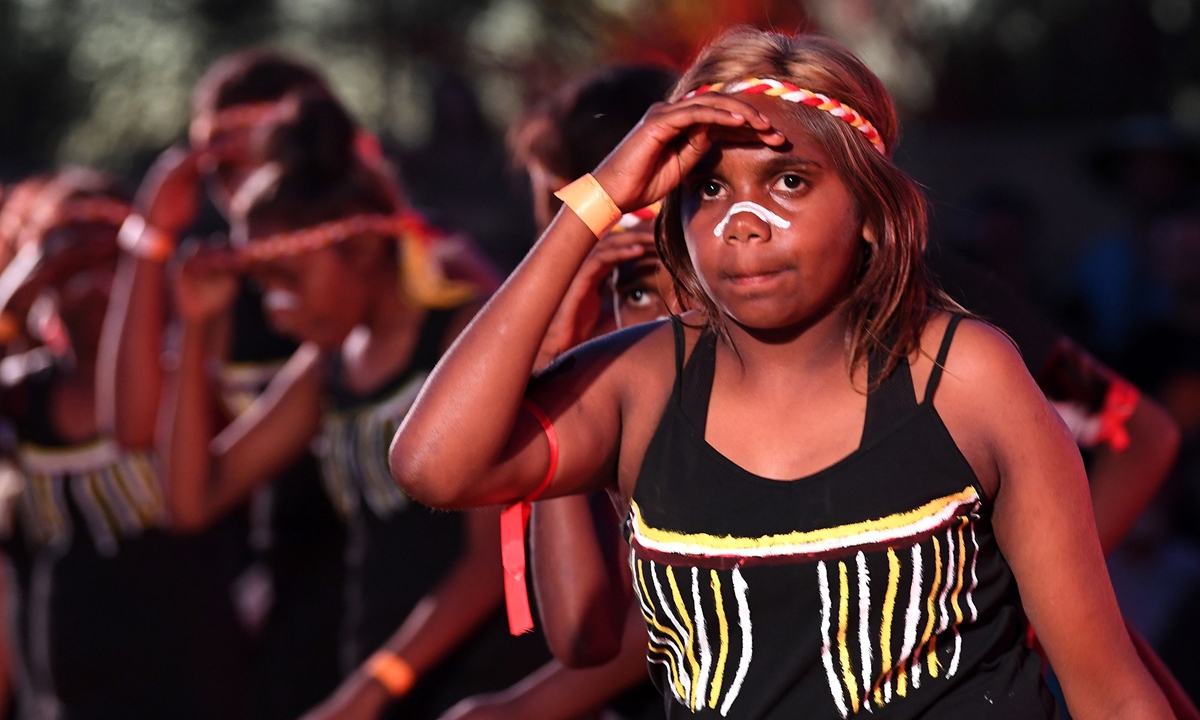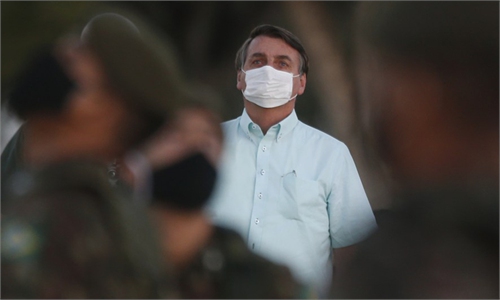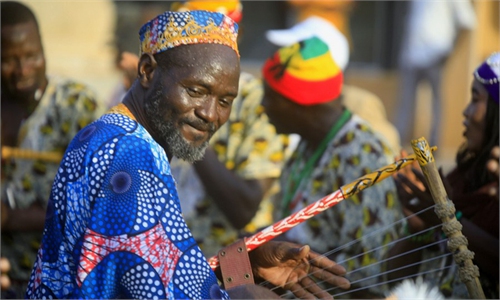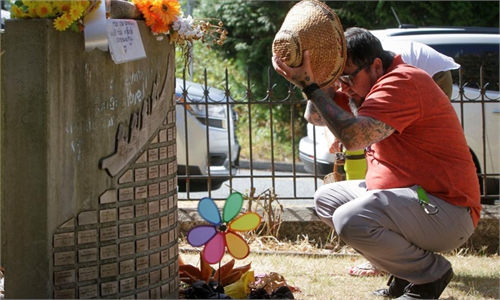Concern over outbreak in Australia indigenous communities

Indigenous Anangu perform a traditional dance during a ceremony marking the permanent ban on climbing Uluru, also known as Ayers Rock, at Uluru-Kata Tjuta National Park in Australia's Northern Territory on October 27, 2019. Photo: VCG
There is "enormous concern" over a coronavirus outbreak in vulnerable Australian indigenous communities, authorities said Tuesday, prompting them to deploy military personnel to deliver vaccines to the largely unjabbed population.A Delta variant outbreak that began in Sydney two months ago has spread to western New South Wales state in recent days, with health officials saying most of the 116 cases detected in the area so far were among aboriginal people.
New South Wales Premier Gladys Berejiklian said the outbreak was of "enormous concern," with the Outback region under lockdown orders in an attempt to curb transmission.
It is the first significant outbreak among the remote aboriginal communities since the pandemic began, and has sparked fears for a population widely believed to be more vulnerable to COVID-19.
At least five teams of military health specialists will head to the area from Wednesday to boost local vaccination efforts, Australia's health minister Greg Hunt said.
"They'll support vaccination but where swabbing or other activities are required they're highly mobile, highly flexible and highly trained," he said in a statement.
Just 15 percent of indigenous people across Australia have been fully vaccinated - falling to less than 8 percent in remote outbreak hot spots - according to officials.
That is despite the population being identified as a priority for early vaccinations when Australia's sluggish vaccine rollout began late February.
Facing questions over whether it had failed in its duty to inoculate aboriginal Australians, the conservative government said some previously did not seek vaccinations because they felt secure living in remote areas.
"This has now changed and it's a game changer, and that's why we're seeing the stepping up," said Minister for Indigenous Australians Ken Wyatt.
Hunt said civilian emergency health teams would also be sent to the region to support local clinics, some of which state officials have said are short-staffed.
Additional measures are being put in place to airlift anyone requiring intensive hospital treatment to bigger towns or cities.
Australia won global praise for its early pandemic response but strict border closures have struggled to keep out the highly transmissible Delta variant amid low vaccination rates.
AFP



